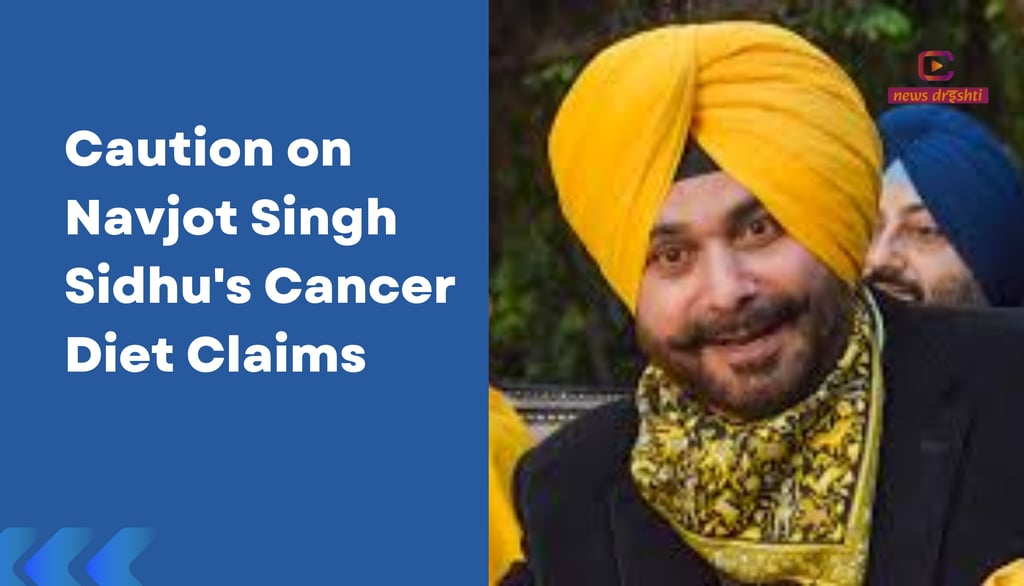Caution on Navjot Singh Sidhu's Cancer Diet Claims
Navjot Singh Sidhu's recent claims about a cancer-killing diet raise concerns. While he attributes his wife's recovery to fasting and herbal remedies, medical experts warn against relying solely on unconventional diets for cancer treatment. Learn more about the implications of such claims.


Former cricketer and politician Navjot Singh Sidhu recently made headlines with claims that an unconventional diet and Ayurvedic lifestyle played a key role in the recovery of his wife, Dr. Navjot Kaur Sidhu, from stage 4 metastatic breast cancer. During a press conference on November 21, Sidhu emotionally shared that his wife’s cancer had “disappeared,” crediting fasting, herbal remedies, and a restrictive diet as instrumental in her recovery.
While this announcement was met with public fascination and admiration, medical experts urge caution regarding such claims. They emphasize that while healthy lifestyle choices can complement medical treatments, they cannot replace evidence-based cancer therapies.
Experts Warn Against Misleading Claims
Dr. Arvind Mehta, a leading oncologist, explains, “Cancer is a multifaceted disease that requires targeted treatments such as chemotherapy, radiation, and immunotherapy. While dietary changes and stress management can support overall health, no diet alone can cure advanced-stage cancer.”
Sidhu’s advocacy of prolonged fasting and restrictive eating has also raised red flags. Nutritionist Meera Joshi warns, “Extreme diets can lead to severe nutritional deficiencies and compromise the immune system, which is crucial for patients battling cancer.” She further highlights the risk of misleading patients away from proven therapies in favor of unverified alternatives.
The Dangers of Overgeneralization
Sidhu’s endorsement of an Ayurvedic lifestyle has sparked debate about the role of traditional medicine in cancer treatment. While Ayurvedic practices may offer benefits in stress reduction and overall well-being, experts stress that their application should be guided by qualified professionals and integrated with modern medicine.
Dr. Mehta adds, “The danger lies in overgeneralizing one individual’s experience as a universal solution. Cancer treatments must be personalized and backed by scientific evidence. Encouraging patients to rely solely on alternative approaches can delay critical interventions and worsen outcomes.”
A Balanced Perspective
Healthcare professionals advocate for a balanced approach to cancer care, incorporating healthy lifestyle practices, balanced nutrition, and psychological support alongside conventional treatments. Sidhu’s story, while inspiring, underscores the need for public figures to promote evidence-based information, especially on matters as critical as cancer treatment.
As the conversation around Sidhu’s claims continues, experts urge individuals to seek guidance from qualified medical practitioners and approach alternative therapies with an informed and cautious mindset. The fight against cancer requires not just hope but also a commitment to scientifically validated treatments.
